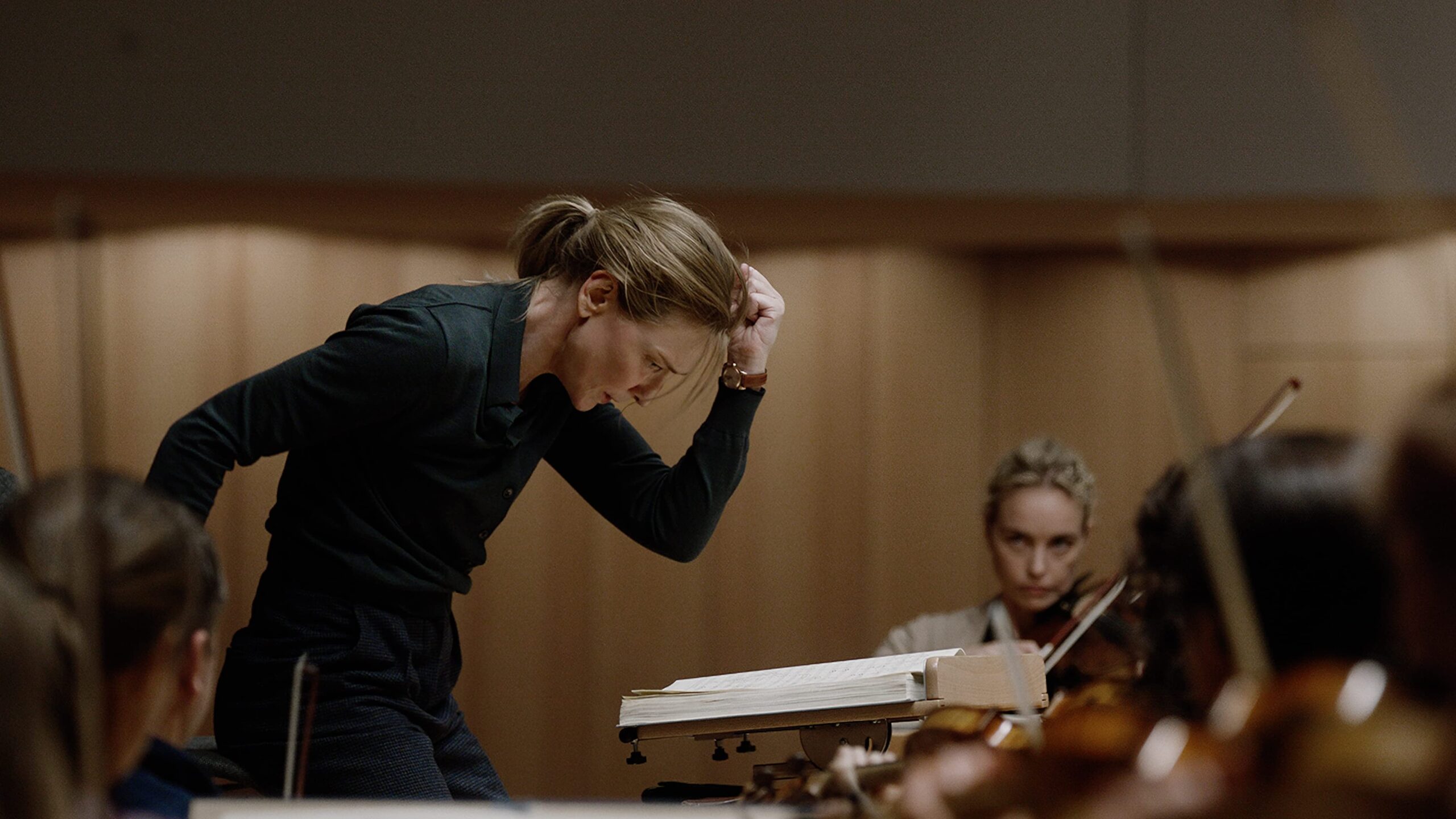It’s true: when a summer blockbuster is flying, fanny pack martial arting, or dance offing, nothing hits that guttural joy more. But when the winter rolls around, movies like Tar arrive, connecting with audiences in an entirely different manner. Todd Field and Cate Blanchett engage your heart through your brain in this fascinating character study of a woman dealing with complex problems and issues Dr. Strange deals with offscreen. Tar is a lovely reminder that compelling stories exist in the real world too, and can even hit a little harder because of how close to home the stories can be at their best.
Through a convenient exposition dump via an Adam Gopnik New Yorker interview, we learn about Lydia Tar (Cate Blanchett). Tar is a conductor prodigy: a student of legend Leonard Bernstein, she’s an EGOT winner (Emmy, Grammy, Oscar, Tony) and the current, first-time, female conductor of the Berlin Philharmonic working on a new piece. But early on, there are signs of a fraying life: despite a long term happy marriage to her first violinist Sharon (Nina Hoss) with an adopted Syrian daughter Petra (Mila Bogojevic), Tar clearly uses her power position for a little personal gain, openly flirting with new cellist Olga (Sophie Kauer) or taking advantage of her assistant Francesca’s (Noemie Merlant) ambition. En route to replicating her mentor Bernstein’s take on Gustav Mahler’s 9 symphonies, Lydia has to juggle all of these issues bubbling to the surface as she tries to leave her lasting legacy on the music world.
Tar dives into the slippery slope of geniuses at work. With the New Yorker interview and her guest Julliard lecture, Lydia’s credentials show up early and often. Director Todd Field circles the camera around Tar as she goes about establishing her bonafides. Like a grad student PhD thesis, the audience gets a crash course in music/conducting theory to follow the plot. Underneath that text Field sets up what the movie is much more interested in. Can art be separated from the artist? How does a person’s character affect their art? How does genius affect intimate personal relationships? What happens when someone is better than you? How does genius translate into social power? Field examines all of these questions and more through an onion peel of Lydia Tar’s story. The more we learn, the more complicated these questions become, and the more the stakes grow, turning Tar’s Mahler adaptation almost into a pseduo heist movie before her secrets come to light. Tar’s actions have real consequences, both for her, and the people in her orbit, and those consequences consistently shape Tar’s status and character as she navigates the drama that continuously grows as she attempts to complete her masterpiece, navigating a greater and greater minefield of self-driven calamities placed in her path.
Only a genius of Cate Blanchett’s caliber could have played the genius of Lydia Tar. The movie doubly qualifies as a highlight reel of Blanchett’s prodigious talents. Early on, we get a masterclass about layering a performance; Blanchett simultaneously establishes that she’s completely in control when describing how brilliant she is when conducting and composing music, but while doing so shows how connecting with everyone else isn’t as important as extracting brilliance for art, by any (usually cruel/awkward/humiliating) means necessary. After that point, Blanchetts submits her thesis on how to arc and change a character. Living on top for that long has let Lydia’s hubris ooze into different parts of her life, blinding her into thinking she understands human behavior as well as she understands music craftsmanship. That hubris then makes Tar overextend herself, which means Blanchett starts to add in growing frazzle, doubt, and anger toward those that might “bring her down.” Plus, all along, there’s hidden depths to the characters Blanchett reveals piece by piece when it fits the story. Tar will be on the shortlist of the best work Blanchett has ever done, and should be shown in every acting class for how to build an amazing movie character.
From the trailer, Tar unfairly might be deemed “pretentious” by the masses. For sure the story material is. But, the movie itself is anything but that, as it tells a completely relatable story about the dangers of treating people badly for the sake of your artistic expression. That lesson applies to Tar as much as it applies to Elon Musk, the Fyre festival guy, or even me. I certainly am trying to not be a dick when writing this review. Hopefully I succeeded, and helped convince you to see this great movie.

